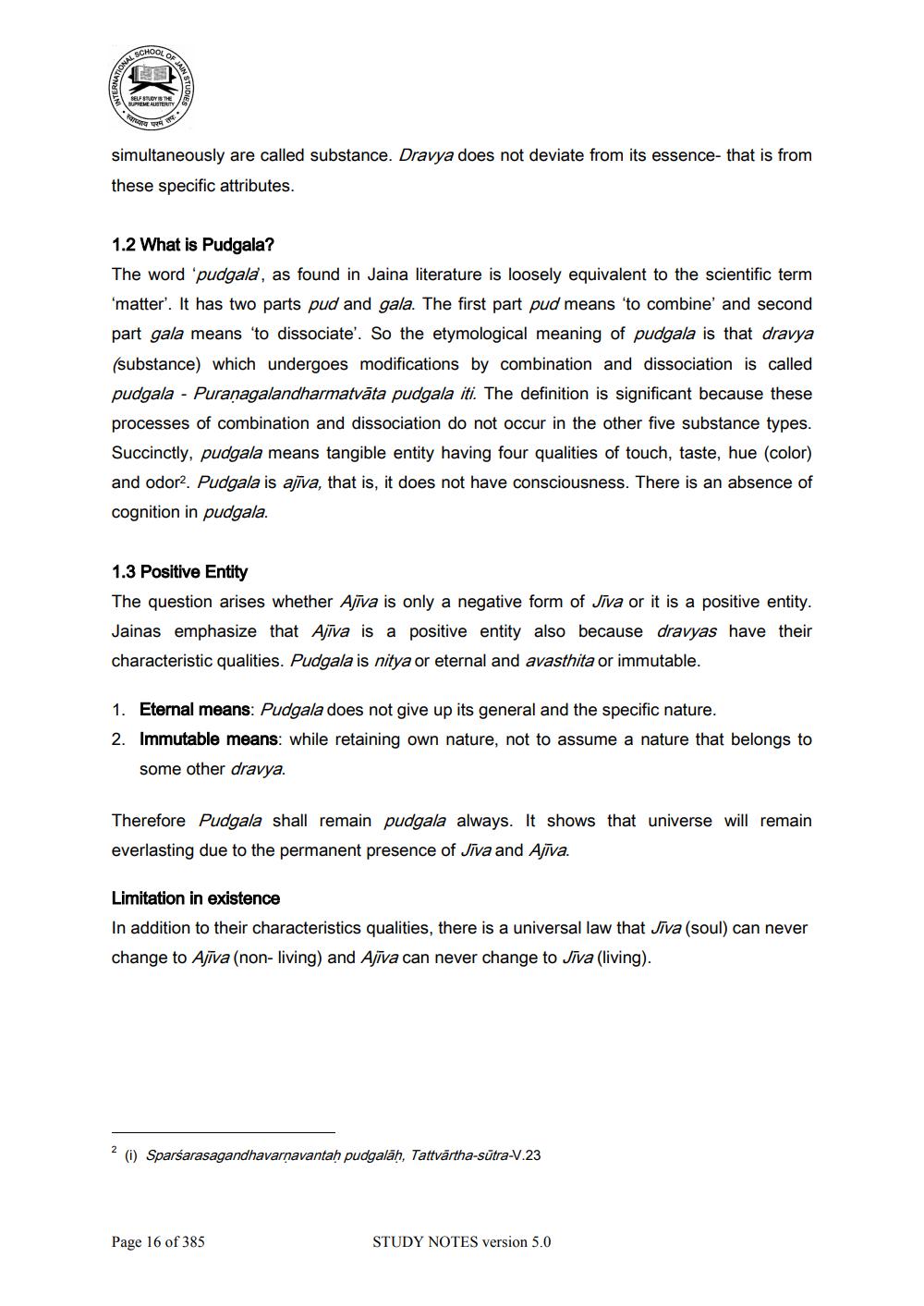________________
INTERNATION
SCHOOL
OF
SELF STUDY IS THE SUPREME AUSTERITY
AN STUDIES
simultaneously are called substance. Dravya does not deviate from its essence- that is from these specific attributes.
1.2 What is Pudgala?
The word 'pudgala, as found in Jaina literature is loosely equivalent to the scientific term 'matter'. It has two parts pud and gala. The first part pud means 'to combine' and second part gala means 'to dissociate'. So the etymological meaning of pudgala is that dravya (substance) which undergoes modifications by combination and dissociation is called pudgala - Puranagalandharmatvāta pudgala iti. The definition is significant because these processes of combination and dissociation do not occur in the other five substance types. Succinctly, pudgala means tangible entity having four qualities of touch, taste, hue (color) and odor2. Pudgala is ajīva, that is, it does not have consciousness. There is an absence of cognition in pudgala
1.3 Positive Entity
The question arises whether Ajiva is only a negative form of Jīva or it is a positive entity. Jainas emphasize that Ajiva is a positive entity also because dravyas have their characteristic qualities. Pudgala is nitya or eternal and avasthita or immutable.
1. Eternal means: Pudgala does not give up its general and the specific nature.
2. Immutable means: while retaining own nature, not to assume a nature that belongs to some other dravya.
Therefore Pudgala shall remain pudgala always. It shows that universe will remain everlasting due to the permanent presence of Jiva and Ajiva.
Limitation in existence
In addition to their characteristics qualities, there is a universal law that Jiva (soul) can never change to Alva (non-living) and Ajva can never change to Jiva (living).
2 (i) Sparśarasagandhavarṇavantaḥ pudgalāḥ, Tattvärtha-sūtra-V.23
Page 16 of 385
STUDY NOTES version 5.0




